It’s probably fair to assume that, for most young actors, that coveted first TV job is unlikely to involve chatting with Bill Nighy about [writer and civil rights advocate] James Baldwin in between takes. But for Crystal Clarke, it did. Her part in the BBC’s new Agatha Christie adaptation, Ordeal by Innocence, following a handful of film and theatre roles (more on those later), marks her small screen debut, starring alongside some of the most recognizable faces in British television: Anna Chancellor, Poldark’s Eleanor Tomlinson, Downton’s Matthew Goode and the aforementioned Love Actually star.
‘It was one of those moments when everything comes full circle,’ she says of her experiences filming the three-part drama, in which she plays Tina Argyll. ‘These are people who I’ve watched for years, and now I’m working with them as part of an ensemble. There’s quite often hierarchies on set, but that wasn’t the case. I had great conversations with Bill about James Baldwin, who is a writer I admire so much, and so does he.’
Ordeal By Innocence is the third Agatha Christie adaptation from Sarah Phelps, who scripted 2015’s nerve-shredding And Then There Were None and the following year’s Witness For The Prosecution. A quintessentially Christie country house whodunnit, it centres upon the murder of wealthy philanthropist Rachel Argyll (Anna Chancellor). When, 18 months after the death, it becomes clear that the accused, (her son Jack, played by Harry Potter and the Cursed Child’s Anthony Boyle) actually had an alibi, the blame must inevitably fall on another member of her family, whether that’s her husband (Nighy), or one of her adopted children. Just like Phelps’ two previous takes, Ordeal By Innocence is hardly comforting viewing. ‘I think the understanding of what an Agatha Christie has been is this classic, tea time viewing. There’s not much delving into the workings of the mind, of the characters, which is completely different to how this show is,’ Crystal explains. ‘There’s so much more going on – intense stories, intense relationships. There was so much backstory for me to gather from the way Sarah had written it. That’s what makes it feel so modern.’

So far, headlines have inevitably focused on the re-shoots that brought Ordeal back to the BBC’s schedule. When sexual assault allegations surfaced against cast member and former Gossip Girl star Ed Westwick last year, the show was pulled from the Christmas line-up, its future in limbo until producers made the decision to replace Westwick (who has denied the allegations) with Christian Cooke and re-shoot his scenes over a 12-day period. Crystal’s anecdotes from the show allude to a camaraderie between a cast and crew that worked against the odds to resurrect the project – and, when the entertainment industry is attempting to move forward in the wake of #MeToo and Time’s Up, also speak to the importance of female visibility on set. ‘There was Sarah [Phelps, the writer], there was Sandra [Goldbacher, the director}, there was Ilana [Garrard] who was the camera operator, which you never see – you never see any women operating the camera, so it’s really uplifting to see her do a wonderful job,’ she says. ‘Even in the cast there’s me, Ella [Purnell], Eleanor – loads of women involved. It made it feel much less like a club that I had to infiltrate.’
The shoot for Ordeal took place in a mansion in the Scottish countryside (‘It was definitely haunted,’ Crystal says), not too far from Glasgow, where the New Jersey-born actor previously studied at the Conservatoire. ‘Everybody else was like, “Where do we go eat?” and I’m like, “Here, there, here…”’ she laughs. ‘I’ve got friends and family up there, a real support system, so that made [the shoot] much easier for me.’ Her decision to hop thousands of miles across the Atlantic to study was, she says ‘a story of going where the opportunity lies and feeling a bit bogged down by my country. I was doing it in the vein of James Baldwin or [American activist] Angela Davis, who left the country so they could figure out what it meant to be themselves. You can build a better view and understanding of yourself in terms of the world around you, instead of what society’s telling you all the time.’
It’s a decision that certainly paid off. Shortly before graduating, Crystal answered an open casting call for a little project called Star Wars, and eventually landed a role in The Force Awakens as a Resistance pilot, ahead of thousands of other hopefuls. She returned for last year’s follow-up, The Last Jedi, but admits she hasn’t yet worked her way through the 150 minute epic in its entirety. ‘I didn’t get to finish watching The Last Jedi!’ she says. ‘I was at a screening, but I was doing a play [Oscar Wilde’s A Woman of No Importance] at the time and had to get off to do that… Most of my stuff was at the end of the film, so I don’t even know what happened, I just had people telling me afterwards.’

Star Wars and a BBC prestige piece are certainly impressive additions to any rising star’s resume, yet Crystal makes some crucial points about how it can often prove difficult to find interesting, developed roles as a woman of colour. ‘Have I seen three-dimensional characters written for a black woman? Straight up, no. I’ve seen them for women, not specifically for black women, but I get sent in for stuff anyway because my agent is amazing. It’s definitely something that needs to be worked on, especially in period dramas like this.’ Indeed, period dramas are among the worst culprits when it comes to diversity on screen, and Crystal believes that the media has a responsibility to stop white-washing and represent British history more accurately.
‘There’s been this terrible habit of erasing black people from Britain’s history, which is just ridiculous,’ she says. ‘I’m not sure the media understands how much power they have in teaching people what their history is: people might watch drama after drama and not see a black person and assume there were ‘no’ black people at that time, which is so not true.’ She adds that writers shouldn’t shy away from creating black characters, citing Sarah’s decision to write Tina as a woman of colour. ‘It’s amazing that Sarah has written this character from a black perspective. I think that’s what scares people the most – they think they can’t put themselves in a person of colour’s shoes. But I’ve grown up having to put myself in Shakespeare’s shoes, and I don’t have anything in common with him! We have way more in common with each other than we do with him.’
Ordeal by Innocence starts on Sunday 1st April at 9pm on BBC One
NOW READ: 11 Brilliant Period Dramas To Stream On Netflix
Best period dramas slider - Grazia
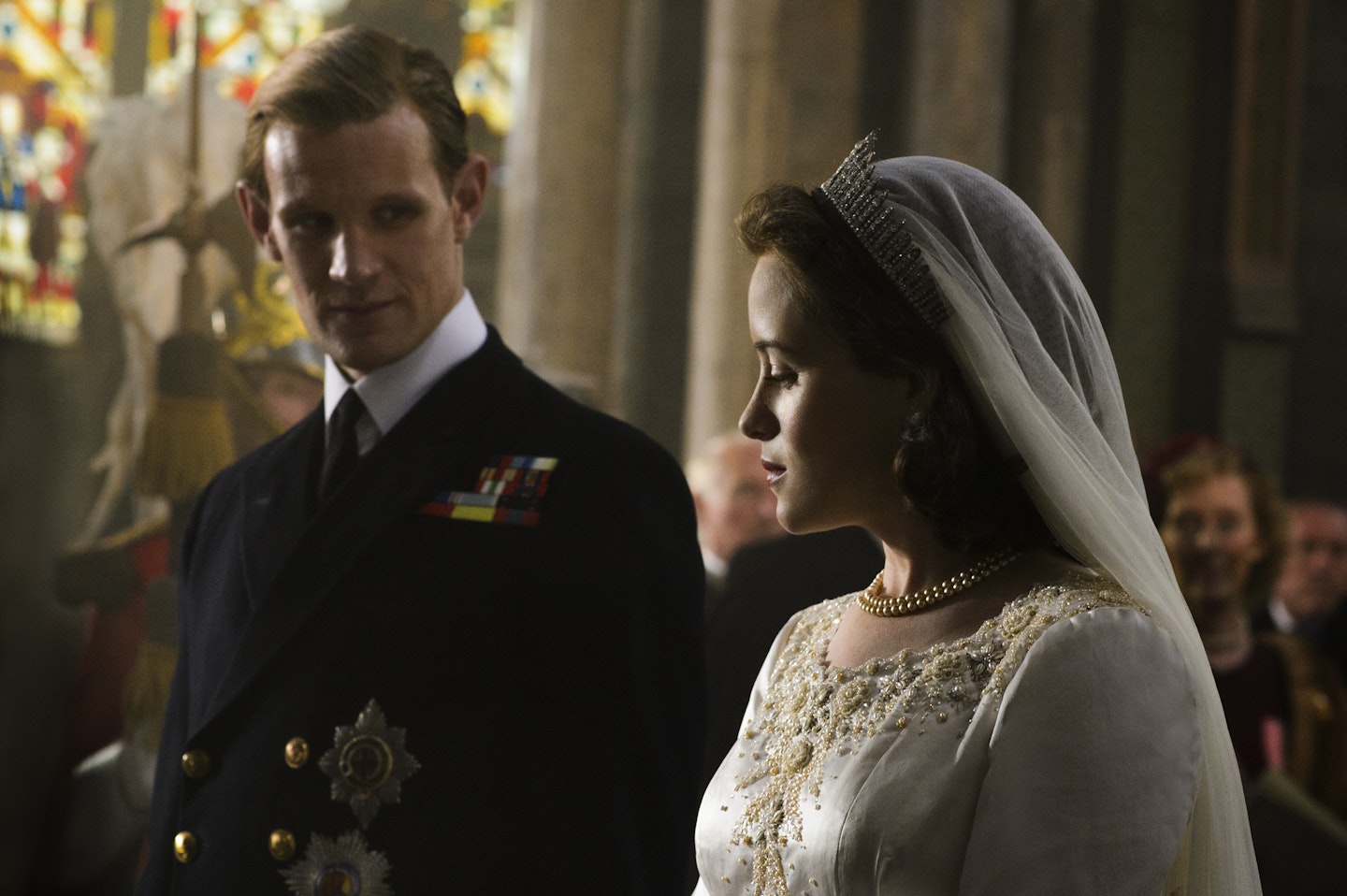 1 of 11
1 of 11The Crown
Netflix's deep-dive into the personal conflicts, political intrigues and public controversies of Queen Elizabeth II's reign is the streaming service's most expensive original drama to date. Luckily, every penny of The Crown's rumoured £100 million budget appears to have paid off. Claire Foy gives a brilliant, sympathetic performance as Elizabeth, nailing the plummy vowels and poise of the monarch without descending into caricature - but it's Vanessa Kirby's Princess Margaret (and her controversial romance with a divorcé) that will have you gripped.
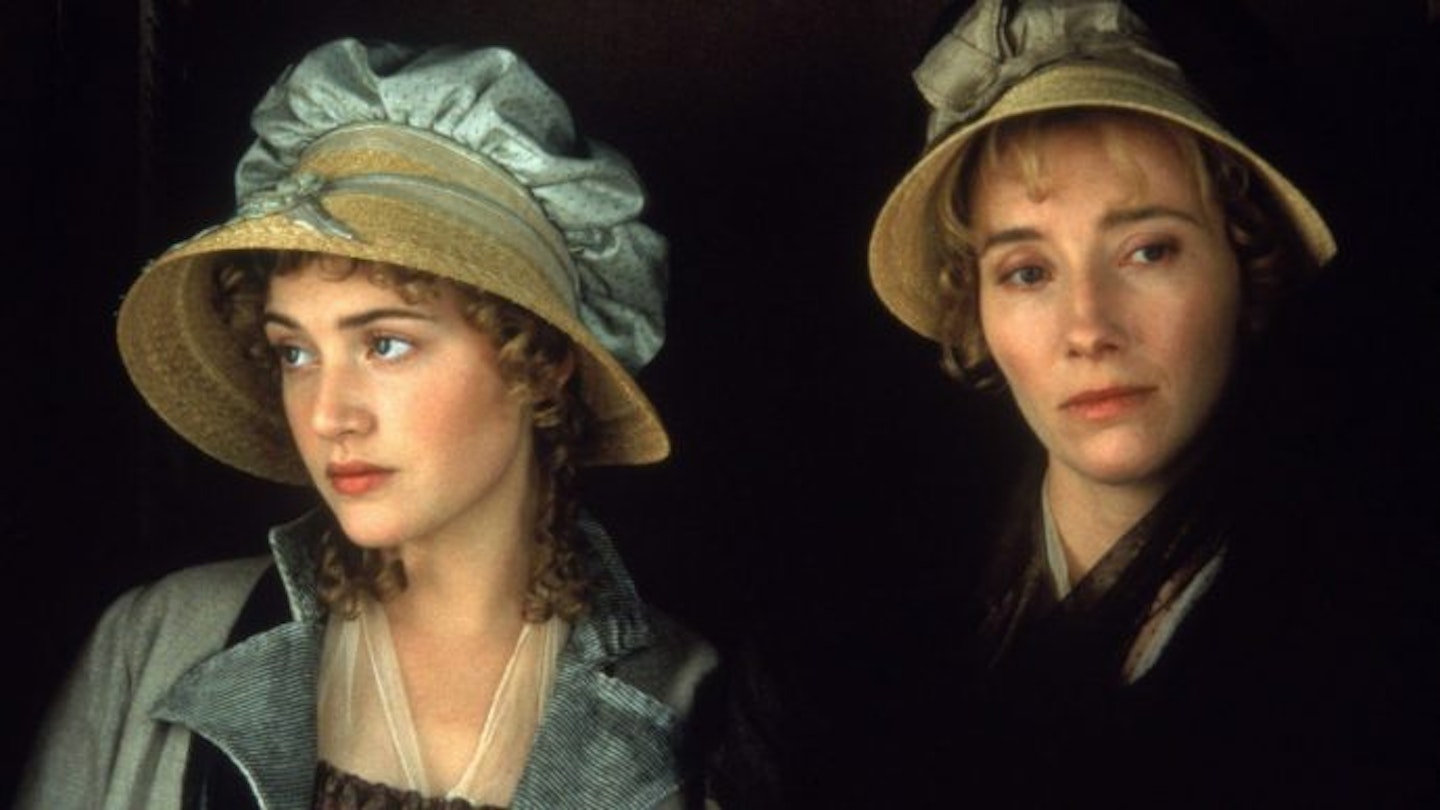 2 of 11
2 of 11Sense and Sensibility
It's hard not to fall for this sweeping big-screen version of Austen's first published work, which stars a who's who of well-mannered British acting. Emma Thompson doesn't just star as quiet, thoughtful heroine Elinor Dashwood: she also laboured for five years on Sense and Sensibility's screenplay, an endeavour which eventually won her an Oscar. A pre-Titanic Kate Winslet stars as her impulsive sister Marianne, with Alan Rickman and Greg Wise as her two drastically different suitors, while Hugh Grant takes his trademarked floppy-haired, charming-but-useless schtick back to the 18th century. Austen herself would surely be amused that the film ended up sparking a real-life romance between Thompson and Wise, who've been together ever since.
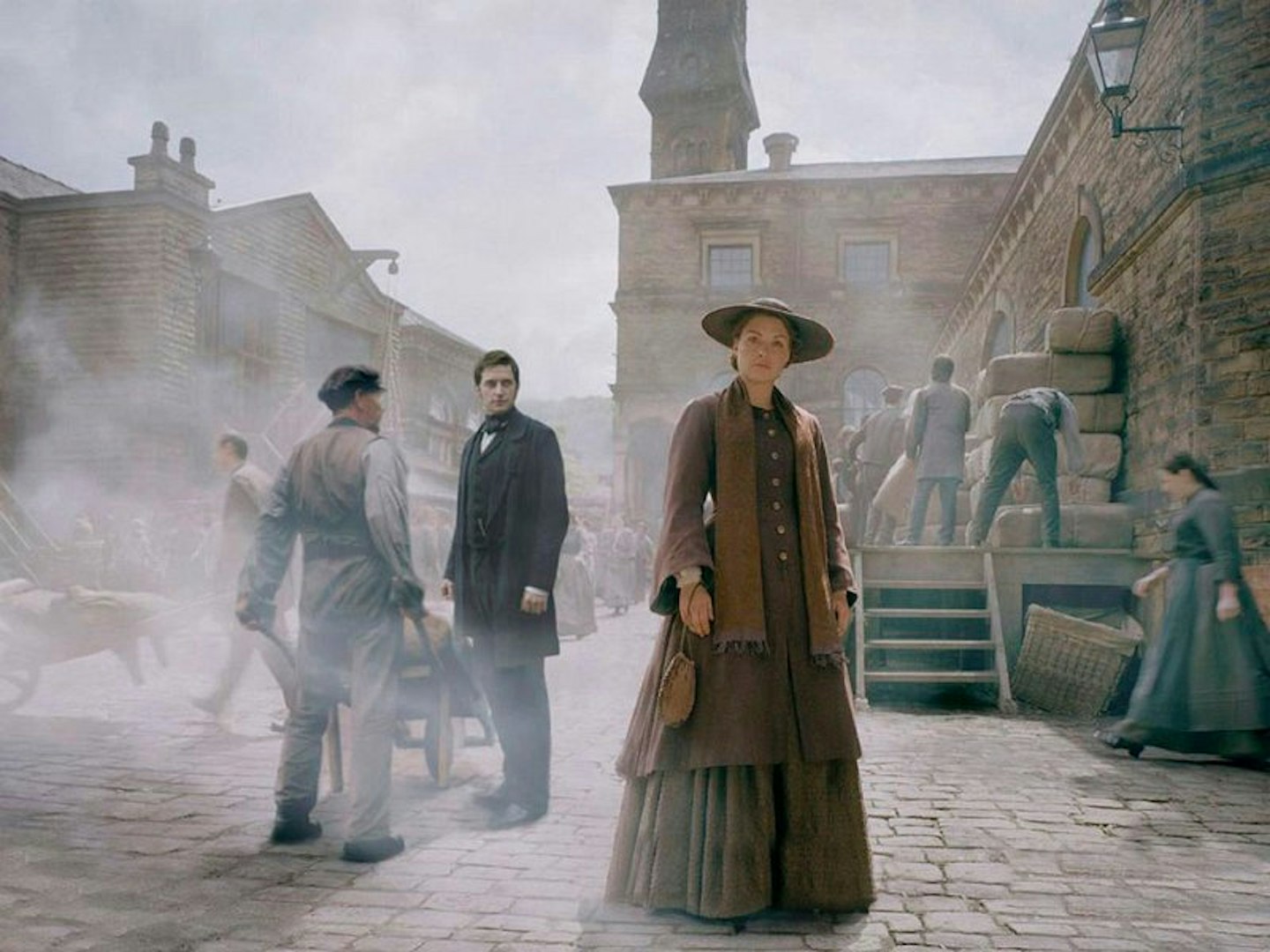 3 of 11
3 of 11North and South
Dour Northerner with a mill meets well-meaning middle class girl with lofty ideals. Such is the premise of this four-part version of North and South, Elizabeth Gaskell's socially conscious, often forward-thinking novel. The privileged Margaret Hale (Daniela Denby-Ashe) forced to move from the leafy south to the grim industrial town of Milton, Darkshire (do you think Gaskell was trying to make a point?) She's immediately appalled by the harsh working conditions at the local mill - and by its owner, John Thornton (Richard Armitage) Spoiler alert: regional opposites eventually attract.
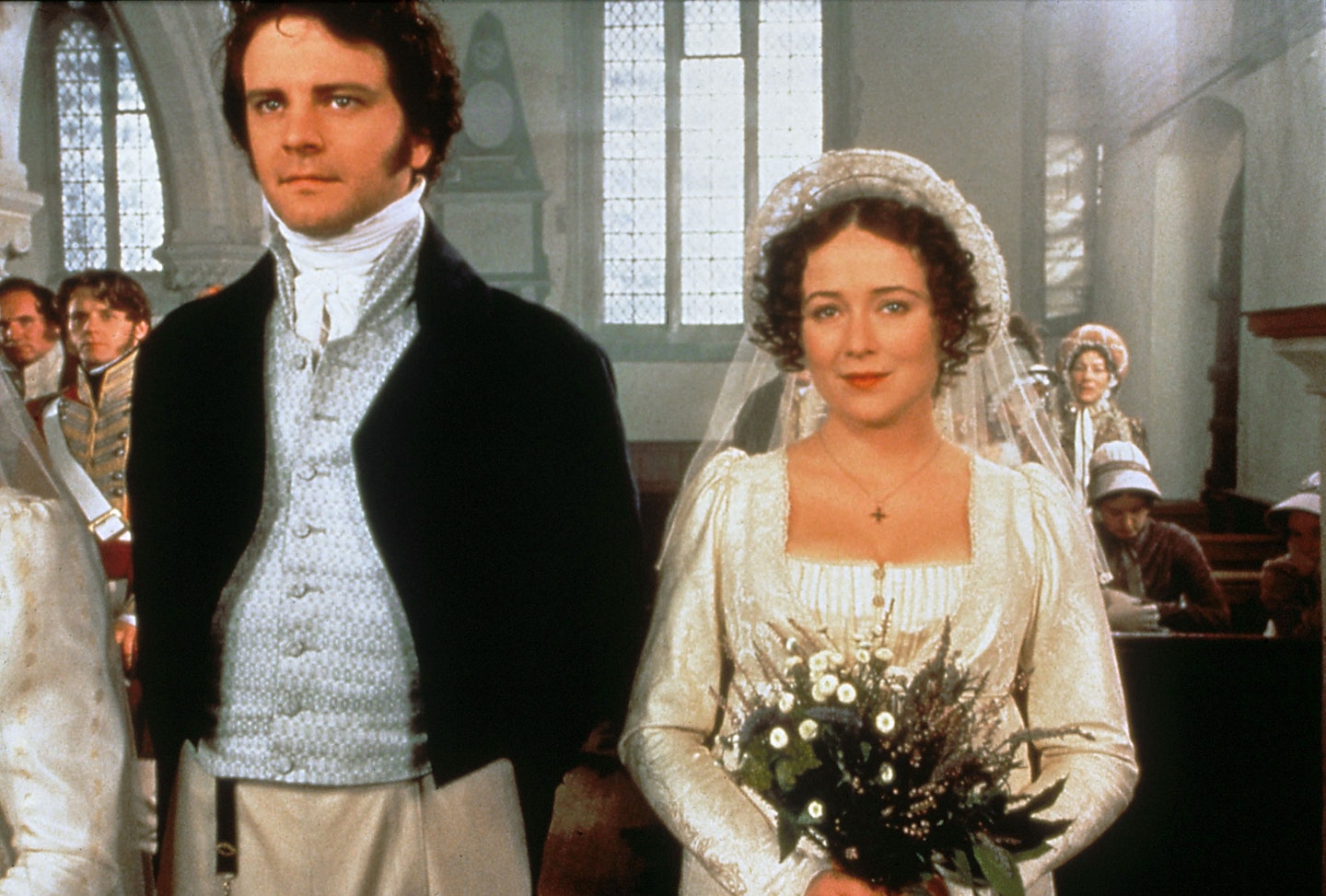 4 of 11
4 of 11Pride and Prejudice
The 2005 take on Jane Austen's best-loved novel, starring Keira Knightley and Matthew Macfadyen, is all well and good, but it's a truth universally acknowledged that this brilliant six-part BBC adaptation will always be the definitive on-screen version. Still best known for the scene in which a soggy Mr. Darcy emerges from a lake - which you definitely won't find in the original text - it's the series that made Colin Firth a national treasure (and gained him a mention in Helen Fielding's Bridget Jones's Diary and a role in the eventual films). Lake-dipping aside, screenwriter Andrew Davies lets the novel's sparkling dialogue speak for itself, making this a total joy for dedicated Austenites and for more recent initiates.
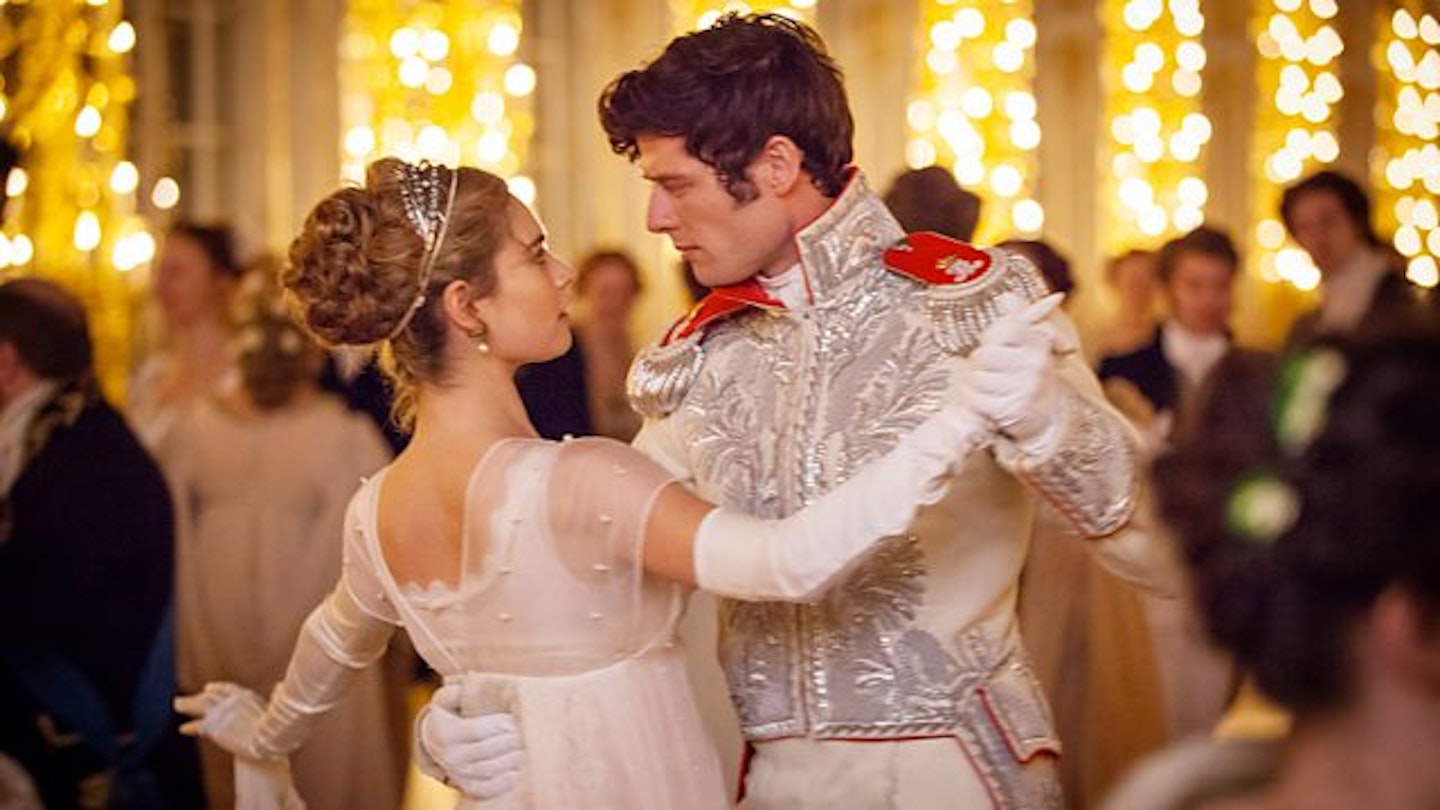 5 of 11
5 of 11War & Peace
If you missed the BBC's lavish version of Tolstoy's sweeping epic when it aired last January, now's your chance to catch up (we get it, that thousand-plus page copy you bought a few years back is just too heavy to read on the tube...) Once again on script duties is Andrew Davies, the writer behind the Beeb's iconic Pride and Prejudice mini-series, who manages to make both the war and the peace compelling. Lily James stars as ingenue Natasha Rostova, with indie star Paul Dano as the slightly sappy Pierre, while James Norton makes a suitably dashing Prince Andrei. We won't judge you if you skip some of the battlefield action, but the dazzling ballroom scene upon which the series hinges can't fail to take your breath away.
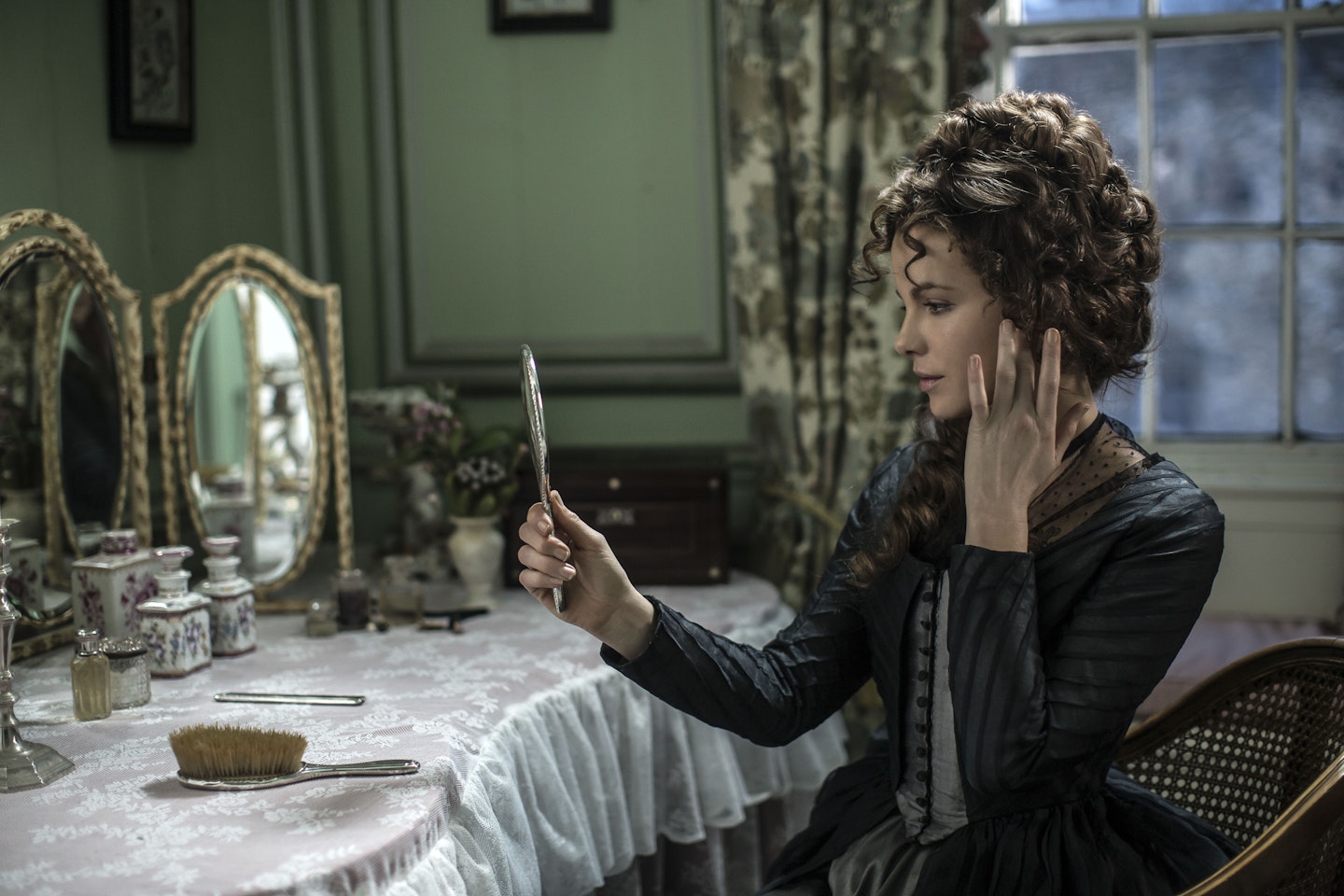 6 of 11
6 of 11Love & Friendship
Bonnet fatigue? Love & Friendship is the perfect tonic; a barbed, breezy dash through Lady Susan, the largely forgotten Jane Austen novella that the author worked on before the greatest hits, and would never see published in her lifetime. As the recently widowed Lady Susan, Kate Beckinsale is an amalgamation of all the best, bitchiest minor characters in Austen's canon, finally given their time in the spotlight, while indie queen and fashion icon Chloe Sevigny is her American sidekick. Playing fast and loose with the conventions, it's a period drama for the 21st century.
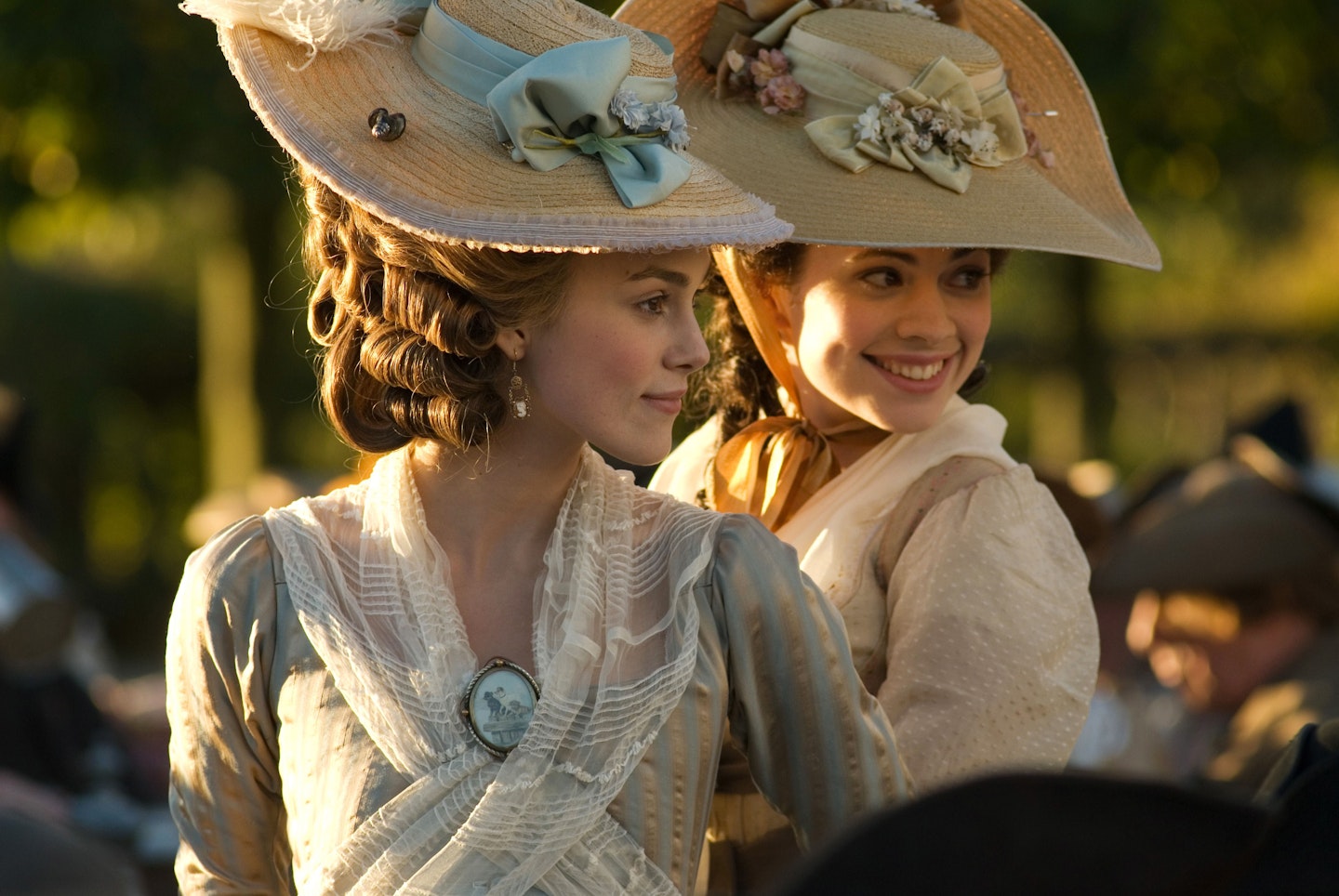 7 of 11
7 of 11The Duchess
Keira Knightley does what Keira Knightley does best in this beautifully turned-out period drama. The 'Duchess' of the title is the scandal-prone Georgiana Cavendish, née Spencer, the 18th century socialite trapped by a loveless marriage and the sexual double standard. With all the lingering shots of stately homes and Keira's intricate costumes (and wigs), you could argue there's more style than substance here, but by shedding light on just how badly women could be treated after their 'happy ending,' it's an interesting counterpoint to the classic period romance. Some striking, achingly sad parallels, too, can be drawn with the life of Diana, Georgiana's great-great-great-grand niece.
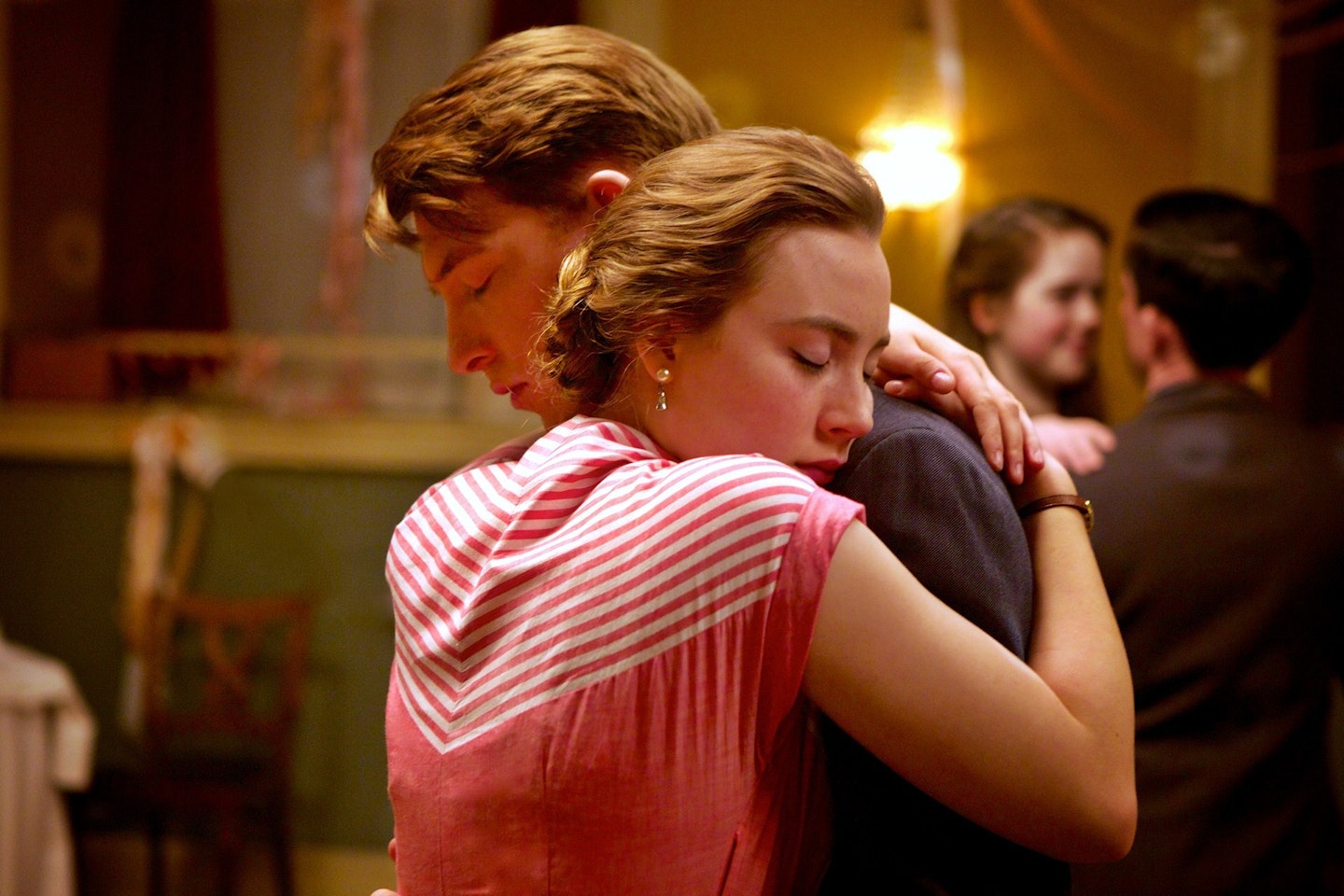 8 of 11
8 of 11Brooklyn
Coming-of-age romances are ten a penny, but* Brooklyn*, adapted from the novel by Colm Toibin, is something special. Saoirse Ronan stars as Eilis, a young Irish girl whose tiny village holds nothing for her. Like many before her, she crosses the Atlantic, gradually finding her feet (and falling in love) in 1950s New York until a family tragedy forces her to temporarily return home. Capturing the very particular sensation of feeling caught between a big city and your home town, not quite at home in either, Brooklyn tugs at the heart-strings without ever feeling manipulative or gushy. While this is very much Ronan's show, Julie Walters, Jim Broadbent and Domhnall Gleeson are brilliant in their supporting roles.
 9 of 11
9 of 11Wuthering Heights
There have been many attempts to bring Wuthering Heights to screens big and small, but the fact remains that Emily Bronte's only novel tends to elude straightforward adaptations: it's far too weird and uncomfortable a proposition for that. But director Andrea Arnold (the woman behind Fishtank and last year's American Honey)'s take on the classic is anything but straightforward. Ditching the bonnets and flowery speeches (and generating some flustered headlines for casting a black actor, James Howson, as Heathcliff) this is Wuthering Heights redux, a film that's as stark and moody as Bronte's original.
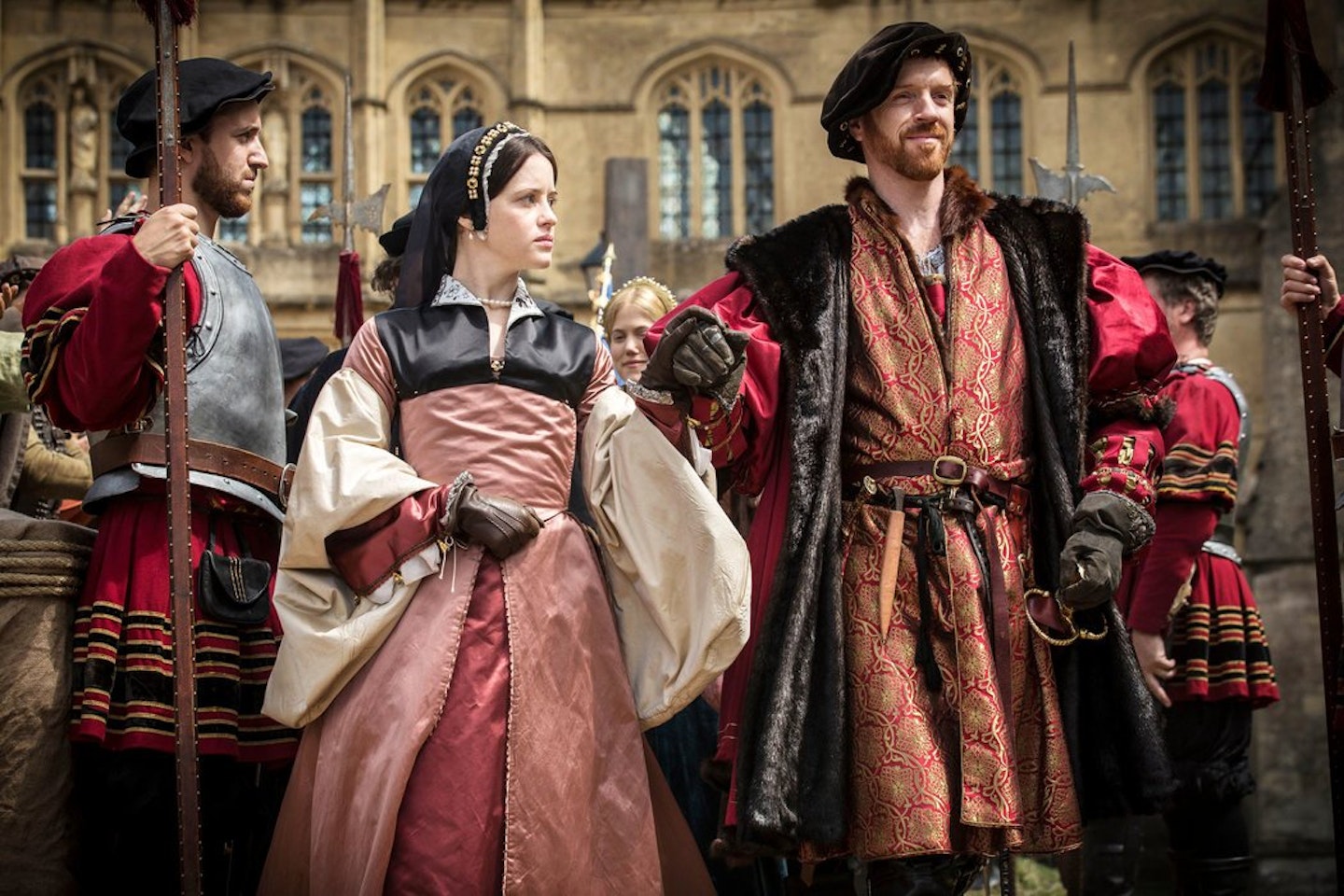 10 of 11
10 of 11Wolf Hall
Before Claire Foy was The Crown's Queen Elizabeth II, she played another, rather more ill-fated royal, Anne Boleyn, in this jaw-dropping adaptation of Hilary Mantel's Booker Prize-winning historical novels, Wolf Hall and Bring Up The Bodies. Across six episodes, the back-stabbing, political machinations and romantic intrigues of Henry VIII's court come to life through the eyes of his 'yes' man, Thomas Cromwell (played by the brilliant Mark Rylance). With the long-awaited third installment, The Mirror and the Light poised for release next year, a second series is reportedly on the cards (Foy, obviously, won't be returning...)
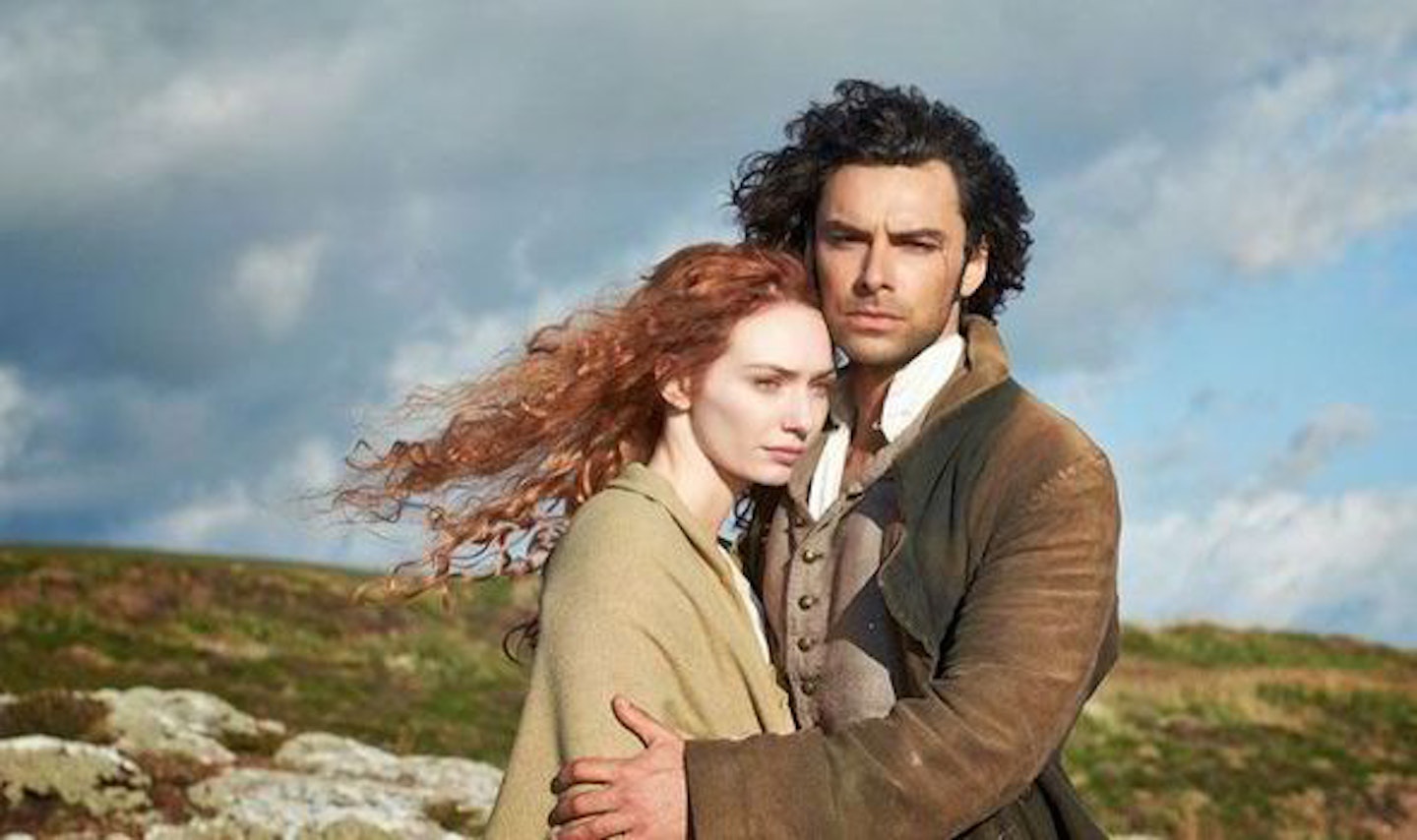 11 of 11
11 of 11Poldark
Unless you've been living under a rock for the past two years (in which case, we salute you) you'll doubtless be familiar with one particular image of potential Bond Aidan Turner as Ross Poldark, which may or may not involve scything. From the melodramatic twists and turns of the plot to the gratuitous shots of Turner brooding against the backdrop of the Cornish coast, Poldark is the ultimate period drama guilty pleasure (your mum probably agrees...)
